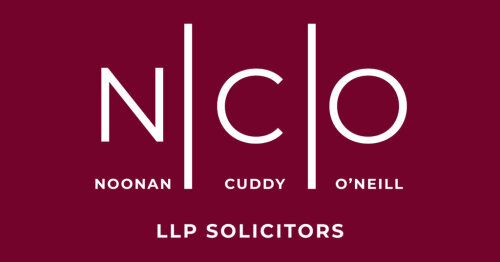Best Medical Malpractice Lawyers in Loughrea
Share your needs with us, get contacted by law firms.
Free. Takes 2 min.
List of the best lawyers in Loughrea, Ireland
About Medical Malpractice Law in Loughrea, Ireland
Medical malpractice, often called clinical negligence in Ireland, refers to situations where a healthcare professional or institution causes injury or harm to a patient through acts of omission or negligence. In Loughrea, as with the rest of Ireland, medical practitioners and healthcare providers are held to high standards of care. If these standards are not met and a patient suffers harm as a result, legal remedies can be sought. Victims of medical negligence have the right to pursue compensation for physical injuries, psychological harm, financial losses, or additional medical expenses incurred due to substandard care.
Why You May Need a Lawyer
Medical malpractice cases are often complex and require detailed understanding of both medical and legal principles. If you have experienced any of the following situations while receiving medical treatment in Loughrea, you may benefit from seeking legal advice:
- Unnecessary or incorrect surgical procedures
- Failure to diagnose or misdiagnosis of a serious illness
- Error in prescribing or administering medication
- Birth injuries affecting either mother or infant
- Infections acquired in healthcare settings due to inadequate hygiene
- Failure to obtain informed consent before treatment
- Delayed treatment leading to worsened health outcomes
A solicitor experienced in medical malpractice will help you understand your rights, gather crucial evidence, calculate potential damages, and represent your interests in negotiations or in court.
Local Laws Overview
Medical malpractice claims in Loughrea are governed by both Irish common law and specific statutes such as the Statute of Limitations Act. Key aspects to be aware of include:
- Duty of Care: Healthcare providers owe patients a duty to provide care that meets accepted medical standards in Ireland.
- Proving Negligence: Claimants must demonstrate that a healthcare provider breached their duty of care and that this breach caused measurable harm.
- Time Limits: Generally, you must initiate a claim within two years from the date you became aware of the injury. Some exceptions may apply, particularly for children or individuals with diminished mental capacity.
- Expert Evidence: Most cases require testimony from independent medical experts to establish whether negligence occurred.
- Compensation: Damages may include compensation for pain and suffering, loss of earnings, medical expenses, and other related costs.
Legal proceedings can involve negotiation for settlement or, if necessary, a trial in the Irish courts.
Frequently Asked Questions
What qualifies as medical malpractice in Loughrea?
Medical malpractice arises when a healthcare provider fails to meet the accepted standard of care, causing injury or damage to a patient. This may include misdiagnosis, surgical mistakes, medication errors, or failure to act on test results.
How do I know if I have a valid claim?
You may have a valid claim if you can show that a healthcare provider acted negligently and this caused you harm. A solicitor can help assess medical records and may obtain an independent expert's opinion to validate your claim.
Who can be held liable for medical malpractice?
Liability can rest with doctors, nurses, dentists, pharmacists, hospitals, and other medical staff or institutions involved in your care.
What is the time limit for making a claim?
In most cases, you must start legal proceedings within two years from the date you became aware of the injury and its possible link to medical negligence.
How much compensation could I receive?
Compensation varies depending on the nature and severity of the harm, loss of income, impact on quality of life, and additional medical costs. Your solicitor can provide an estimate specific to your situation.
Will I need to attend court?
Many claims are settled before reaching court. However, if an agreement cannot be reached, your case might proceed to a court hearing where evidence will be presented.
What is the process for filing a medical malpractice claim?
The process involves consulting a solicitor, gathering medical records, obtaining expert reports, setting out the claim in writing (a Letter of Claim), and entering negotiations. If necessary, your solicitor will begin formal court proceedings.
Can I claim on behalf of a child?
Yes, parents or guardians can claim on behalf of children. The time limit for bringing a claim does not begin until the child reaches 18 years of age.
How do legal costs work in these cases?
Most solicitors offer an initial consultation to assess your case. Legal costs can vary. Some solicitors may offer a no win, no fee agreement, but transparency about potential expenses is essential from the outset.
What evidence is needed for a successful claim?
Evidence may include your medical records, witness statements, photographs, receipts for expenses, and, most importantly, a report from an independent medical expert supporting your claim of negligence.
Additional Resources
If you need more information or support regarding medical malpractice in Loughrea, the following resources may be helpful:
- The Law Society of Ireland - find accredited solicitors in your area
- Citizens Information - provides accessible legal guidance and information on negligence claims
- The Health Service Executive (HSE) - file complaints or request access to your medical records
- Medical Council of Ireland - professional standards and complaints about practitioners
- The Injuries Board (now PIAB) - guidance on personal injury assessments outside of medical negligence claims
Next Steps
If you believe you have been a victim of medical malpractice in Loughrea:
- Gather all relevant documentation, including medical records, correspondence, and a timeline of events.
- Contact a solicitor experienced in medical malpractice as soon as possible to assess your case and ensure compliance with legal time limits.
- Discuss with your solicitor the evidence required and strategy for your claim, including the need for independent medical expertise.
- Consider making a formal complaint to the healthcare provider or relevant authority, as this can sometimes resolve issues without formal litigation.
- Follow your solicitor’s guidance on the next legal steps, which may include negotiation or formal court proceedings.
Seeking early expert legal advice is crucial to protect your rights and give your case the best possible chance of a successful outcome.
Lawzana helps you find the best lawyers and law firms in Loughrea through a curated and pre-screened list of qualified legal professionals. Our platform offers rankings and detailed profiles of attorneys and law firms, allowing you to compare based on practice areas, including Medical Malpractice, experience, and client feedback.
Each profile includes a description of the firm's areas of practice, client reviews, team members and partners, year of establishment, spoken languages, office locations, contact information, social media presence, and any published articles or resources. Most firms on our platform speak English and are experienced in both local and international legal matters.
Get a quote from top-rated law firms in Loughrea, Ireland — quickly, securely, and without unnecessary hassle.
Disclaimer:
The information provided on this page is for general informational purposes only and does not constitute legal advice. While we strive to ensure the accuracy and relevance of the content, legal information may change over time, and interpretations of the law can vary. You should always consult with a qualified legal professional for advice specific to your situation.
We disclaim all liability for actions taken or not taken based on the content of this page. If you believe any information is incorrect or outdated, please contact us, and we will review and update it where appropriate.









